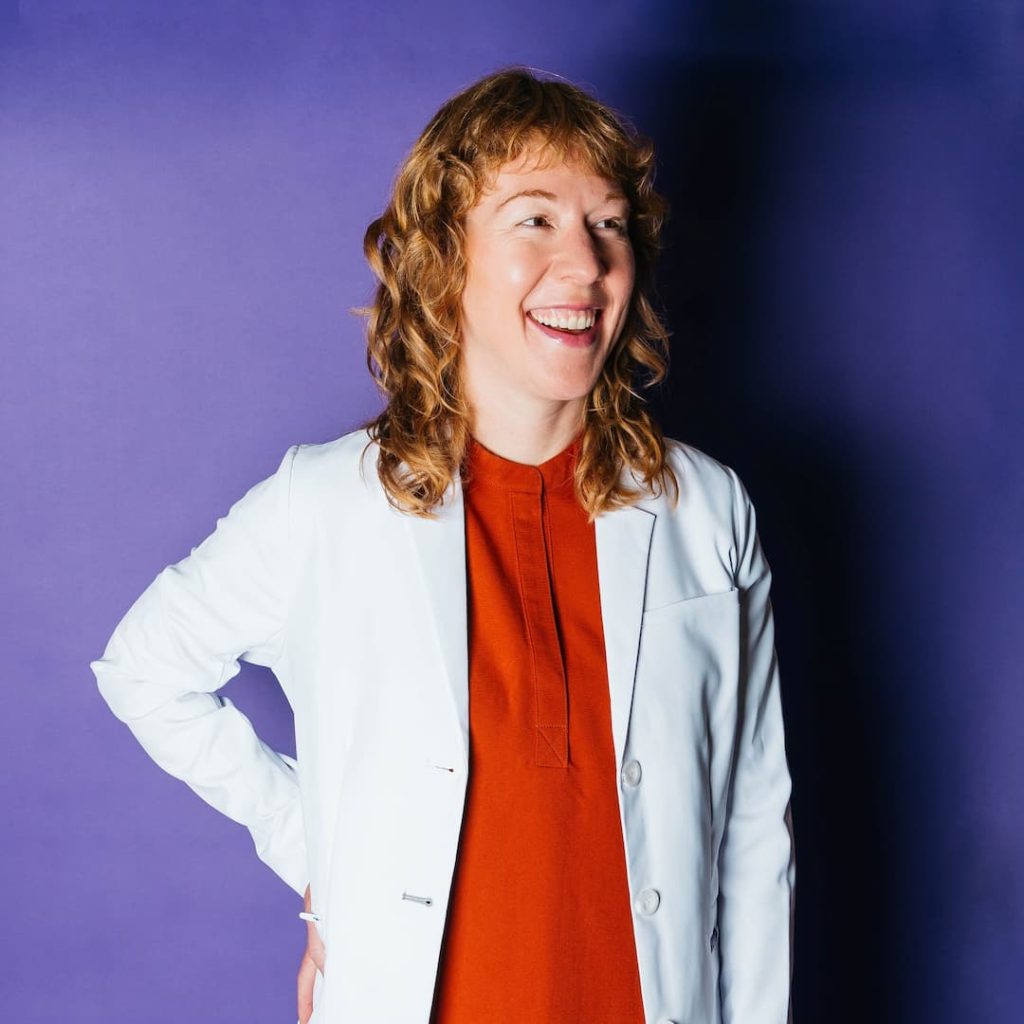Grounded in Science, Guided by Compassion
As the secretary of CHR’s Board of Directors, Dr. Melody Glenn brings a unique blend of medical expertise, fierce compassion, and systemic advocacy to the table. An addiction physician currently based at the University of Arizona, Dr. Glenn’s journey with CHR began not in a clinical setting, but on the streets of Sierra Vista—where harm reduction happens in real time.
“I was part of a team that had received grant funding to increase access to evidence-based addiction treatment in Cochise County. Although I know a lot about the medicine of addiction…I didn’t know much about Cochise County,” she reflects. A recommendation led her to CHR founder and executive director Lu Funk. “They graciously allowed me to shadow them for a day. Seeing their vision and dedication, as well as the glaring need for their services on the ground, I knew I wanted to find a way to support their work.”
What began as an exploratory visit quickly became a long-term commitment. Melody joined CHR’s Board of Directors and has since helped guide the organization through a period of rapid evolution. “CHR has grown exponentially over the last 3 years,” she notes. “When I went on that first route with Lu, they were mainly giving out sack lunches, supplies to stay warm, and wound care and harm reduction supplies. Now…animal fostering for clients who are hospitalized, hot meals, and even employment for people who use drugs.” CHR’s responsiveness, she says, comes from a simple truth: “When Lu sees a need, they find a way to address it.”
Though time is always tight—between her full-time job, board work, and parenting two young children—Melody says she’s continually inspired by her fellow CHR board members. “They bring expertise from so many disciplines—human resources, management, operations, harm reduction, nonprofits, legal, strategy, fundraising—and all of it is useful. They teach me something new every day.”
Melody also shares what many working in harm reduction know too well: CHR’s biggest challenge isn’t philosophy or passion, but resources. “We’d love to give the world to our staff and participants, but can only give as much as we have,” she admits. “That being said, Lu and CHR have still prioritized the holistic wellbeing of their employees and participants.”
As someone trained in the science of addiction, Melody didn’t initially learn about harm reduction in her medical education—a reality she finds deeply frustrating. “I don’t think I learned anything about harm reduction during medical school, which is a serious omission given how effective it is… Our physicians aren’t taught anything about how to prevent [overdoses]??” That began to shift during her emergency medicine residency in 2015. After reading a research article on naloxone, she helped launch one of the first naloxone distribution programs in a Phoenix ER. Still, it took time for the full picture to come into focus: “Years later…I realized harm reduction is so much more than giving out naloxone—it supports any positive change. It’s an entire philosophy that supports individuals as the experts in their own care.”
One major role of CHR’s board is forward-thinking: identifying issues before they escalate and creating a foundation for long-term sustainability. Public misconceptions, Melody says, remain some of harm reduction’s biggest barriers. “The most dangerous misconception…is that it enables and leads to increased drug use—but the evidence shows the opposite.” She also challenges the assumption that everyone who uses drugs must be heading toward sobriety. “Only 5% of people who could benefit from substance use treatment think they need it. So what about the other 95%? Harm reduction.”
Despite the obstacles, Melody has seen powerful change during her time in the field—especially in Arizona. “Fentanyl test strips are no longer illegal…the state health department supports a robust naloxone program…more hospitals are starting buprenorphine and methadone,” she lists. And through it all, CHR continues to grow and lead with impact.
Looking to the future, Melody envisions bold, community-led progress. “We need to continue elevating the voices of our participants and people who use drugs.” She warns of the risk of those voices being drowned out as harm reduction becomes more mainstream. “It was people who used drugs who first developed naloxone distribution—not physicians or public health experts—and they are who will continue to envision the solutions we need.”
Her admiration for CHR’s founder is unwavering. “Really, you should be asking Lu this question—they are the one who continues to amaze me.” At every turn, Melody is reminded that harm reduction isn’t one-size-fits-all—it’s as creative and adaptive as the community it serves. “Before meeting Lu, I never would’ve thought that harm reduction encompassed watching participants’ pets when they’re hospitalized—but of course it does!”
Beyond the boardroom and exam room, Melody continues her work on a national level. Her new book, The Mother of Methadone, was released on July 22nd, with readings and signings scheduled across the country this August. Still, CHR remains close to her heart—as a model for what’s possible when compassion and evidence work hand in hand.
“Just jump in,” she says to those interested in harm reduction work. “Start by volunteering to learn more about the organization. That really helped me.” In CHR, she found not only a mission aligned with her values, but a team bold enough to reimagine what care can look like—even when the road is long, rural, and uphill.
Dr. Melody Glenn’s release of her new book, Mother of Methadone: A Doctor’s Quest, A Forgotten History, A Modern-Day Crisis is now available to order as of July 22, 2025! Check out all of Dr. Glenns August book tour dates!
